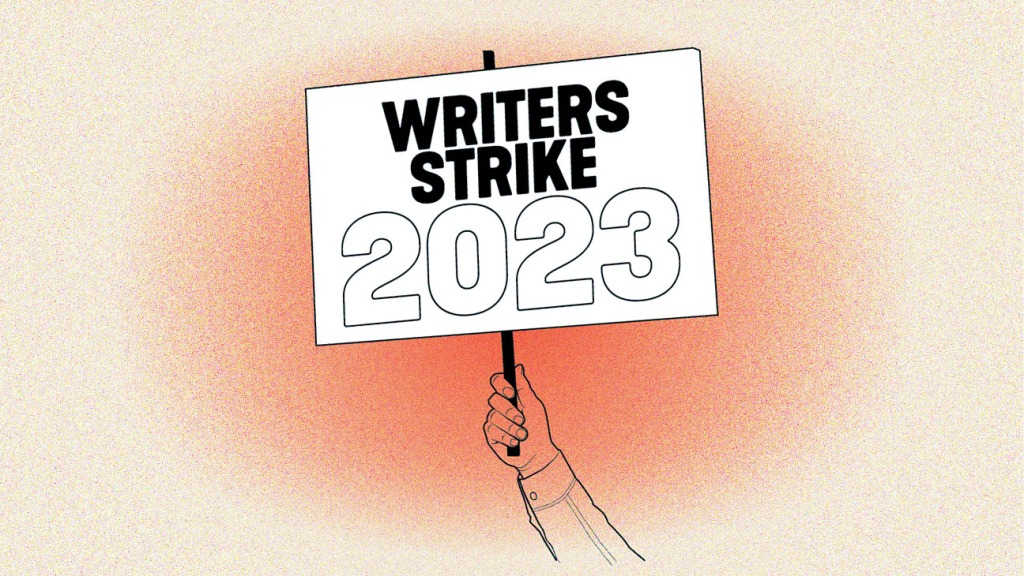
On Nov. 7, the Writers Guild of America unveiled its negotiating committee for its upcoming 2023 contract talks, a list that combines longtime union leaders with prominent members and writers working across genres. But so far, without a general membership meeting or “pattern of demands” released, guild members have been left guessing about whether the union might mount a credible strike threat in the spring or table harder-hitting talks for a more economically stable time.
While top execs are preparing for a strike they are sure is coming after the WGA’s contract expires May 1 — and the WGA leadership has been nettled by the Directors Guild of America initiating informal talks with employers — the writers themselves are less certain.
Amid restructurings at such companies as Netflix and Warner Bros. Discovery and the threat of a potential recession that writers say is hurting both the showrunner and workaday writer class, “This is going to be a weird moment that is going to test our ability to figure out whether or not we can get some of the things we need in a treacherous economic position,” says one veteran TV scribe who puts the odds of a strike after the WGA contract expires at 20 percent. (The WGA West says in a statement that general membership meetings about the negotiations are set to begin in early 2023.)
David H. Steinberg, showrunner of Netflix’s No Good Nick, adds that with middle-class writers feeling the pain from streaming-era issues like “mini-rooms” — which tend to pay writers less than official writers rooms — and shorter orders of series than were typical in the past, “That’s why you would think there would be an inclination toward a strike because these issues just need to be resolved.” But he adds that the likelihood of a strike will ultimately depend on what studios offer writers: “Until they sit at the table, you have no idea what the studios are going to do.”
Meanwhile, many outside the writer community are fretting about, with some preparing for, a potential work stoppage. Start dates of writers rooms are seemingly being accelerated under the assumption of a strike, sources say: A top rep for TV talent notes they are “seeing random rooms pop up in a way [that’s] uncommon for this time of year.”
One top TV executive, speaking on background, is confident that a strike will happen, noting that a work stoppage’s impact may not hit companies’ bottom line until later in the year, and cost savings might be beneficial. (During the 2007-2008 WGA strike, companies took advantage of “force majeure” contract provisions that allow parties to renege on contractual obligations in the face of unforeseen events to offload pricey overall deals.)
Of course, the writers aren’t the only ones that employers need to worry about next year. The DGA and SAG-AFTRA both have their major TV and theatrical contracts coming due on June 30, 2023, with their own significant streaming-era issues to contend with. Companies seemingly don’t need to worry about a superstar DGA-WGA union alliance, however, as old tensions between the two unions appear to have flared anew: “The WGA in essence refuses to talk to the DGA,” says one informed industry observer about 2023’s round of talks, even as the DGA has already begun their informal talks with employers prior to their formal negotiations, which aren’t expected to be contentious. “They’ve gone inward.”
A DGA spokesperson said in a statement that the union is prepared to win “an exceptionally strong, modern, globally-minded contract for Directors and their team members,” noting that “we all have a stake in issues like wages, streaming residuals, funding for our health and pension plans and more” and that no formal bargaining sessions have yet been scheduled.
Writers Guild West president Meredith Stiehm said in her own statement that “if reports that the DGA is in ‘informal talks’ are true, it is consistent with their established practice of negotiating many months prior to their contract deadline and without any plausible strike threat.” Stiehm added that the WGA has a “standing offer” to the DGA: “If they are willing to bargain to contract deadline, take a strike vote, if necessary, and, if necessary, actually be willing to strike, should that be required to achieve an agreed upon set of goals for our joint membership, we’re 100 percent on board.”
Lacey Rose and Mia Galuppo contributed to this report.
A version of this story first appeared in the Dec. 16 issue of The Hollywood Reporter magazine. Click here to subscribe.

